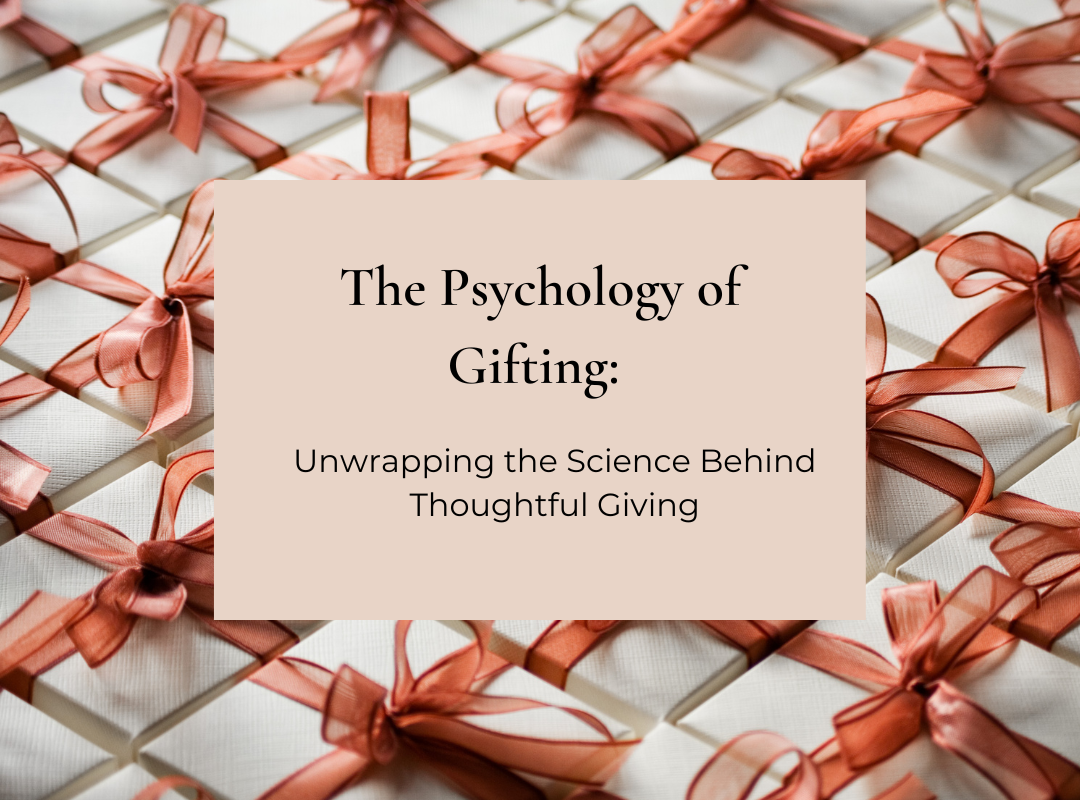
The Psychology of Gifting: Unwrapping the Science Behind Thoughtful Giving
Hello there! I'm Amanda, Founder and CEO of Linden Square, and today we're diving into a topic that's near and dear to my heart—the psychology of gifting. Now, you might be thinking, "Amanda, it's just a gift. What's the big deal?" Well, my friend, there's more to gifting than meets the eye. It's not just about the physical exchange of objects; it's a complex interplay of emotions, social norms, and even neuroscience. Intrigued? Let's unwrap this together.
The Emotional Currency of Gifts
Gifts are more than just material goods; they're emotional currency. When you give a gift, you're not just handing over a thing—you're conveying a message. Whether it's love, appreciation, or even an apology, the act of gifting serves as a tangible representation of your feelings. According to a study published in the Journal of Consumer Psychology, the emotional impact of a gift can significantly influence the strength and quality of your relationships.
The Reciprocity Principle
Ever heard of the saying, "It's better to give than to receive"? There's actually some psychological truth to that. The principle of reciprocity is deeply ingrained in human behavior. When someone does something nice for us, we feel compelled to return the favor. This creates a cycle of kindness and generosity that strengthens social bonds. A study in the journal Social Psychological and Personality Science found that the act of giving can create a feedback loop of generosity, benefiting not just the giver and receiver, but also the community at large.
The Dopamine Hit
Ah, dopamine—the "feel-good" neurotransmitter. Believe it or not, both giving and receiving gifts can trigger the release of dopamine in the brain, leading to feelings of pleasure and satisfaction. This is why gifting can be so addictive; it's literally making us happier! A study from the National Institutes of Health showed that the act of giving activates the same parts of the brain that are stimulated by food and sex. So, in a way, giving is a natural high.
The Art of Thoughtfulness
Now, let's talk about the elephant in the room: bad gifts. We've all been there, either as the giver or the receiver. The key to a great gift isn't necessarily its monetary value but its thoughtfulness. A well-chosen gift shows that you understand and appreciate the other person's needs and desires. It's a form of emotional intelligence, a skill that, according to Daniel Goleman's seminal book "Emotional Intelligence," is crucial for success in life and relationships.
The Business of Gifting
For those of us in the corporate world, gifting isn't just a personal endeavor; it's a business strategy. A well-executed corporate gift can strengthen client relationships, boost employee morale, and even improve your bottom line. But remember, the principles of thoughtful gifting apply here too. A generic, impersonal gift can do more harm than good. So, invest the time and effort to choose gifts that resonate with your clients and employees.
Wrapping It Up
Gifting is a fascinating blend of psychology, sociology, and even a dash of neuroscience. It's a practice that transcends cultures and generations, serving as a universal expression of human connection. So the next time you're wrapping up a gift, remember—you're not just tying a bow; you're weaving a complex tapestry of human emotions and relationships.If you're keen to explore this topic further, I'd recommend diving into "The Gift: The Form and Reason for Exchange in Archaic Societies" by Marcel Mauss. It's a seminal text that delves deep into the social and psychological aspects of gifting.
Until next time, happy gifting!
